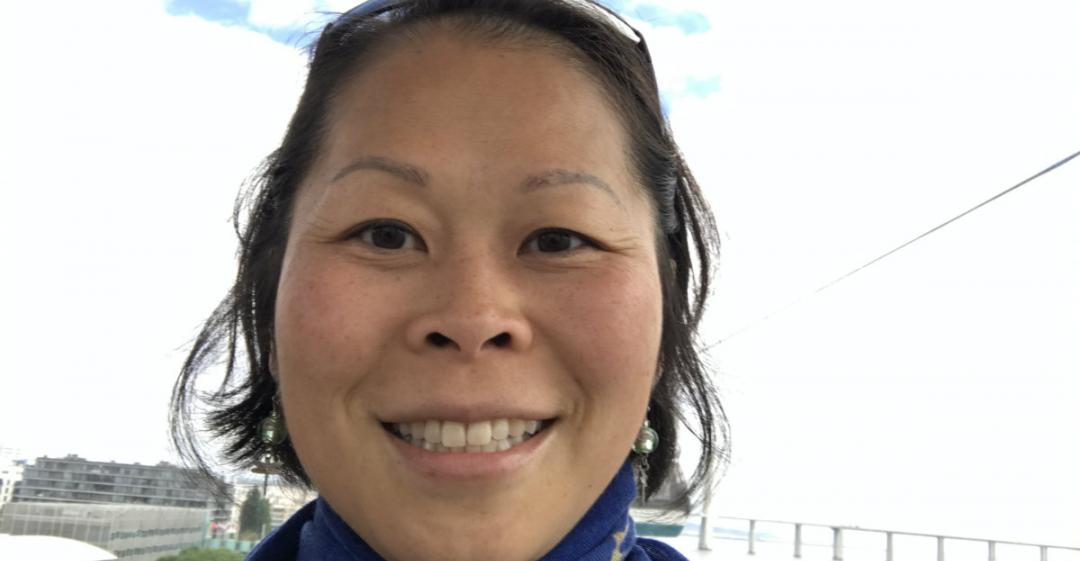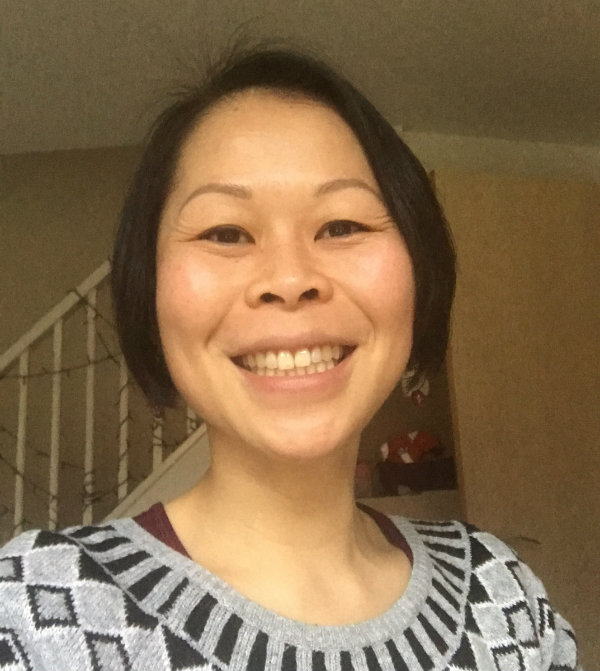“Most days, I felt like I was in the wrong place.”

What work were you doing previously?
I started my career as an event organiser in charities.
I worked for a number of organisations both in the UK and Hong Kong. Due to the work I was doing I was always part of the fundraising team of the charity I was working for.
Being part of the fundraising teams meant that I gained knowledge and skills around different areas of fundraising, and so by the time I joined my fourth charity I made a sideways move to head up a fundraising team myself and into general fundraising.
What are you doing now?
I now work as a contract project manager for the government.
How did you feel in your work before you decided to make the change?
I was bored.
I'd been in fundraising for twelve years and the work just seemed endless.
The fundraising targets reset at the end of every month or year because the charity relied on fundraising to run its operations.
Why did you change?
I started out in my career using the skills that I enjoyed – organising and coordination.
When I made the move to general fundraising, I realised that I'd moved away from what I enjoyed. Fundraising does contain a huge element of organisation and coordination, but the majority of it was also about promotion and selling the charity, and that just wasn't me.
When was the moment you decided to make the change?
A couple of years ago I noticed that I was gradually feeling more and more discontented and not fulfilled with what I was doing.
It got to the point where, most days, I felt like I was in the wrong place in my career.
How did you choose your new career?
I started to read around identifying my strengths, taking career quizzes, following entrepreneurs who I admired and looking for other jobs.
This process took me a while as I was quite confused about what I wanted to do and nothing really appealed.
The light-bulb moment came when I kept on questioning myself about what it was about my current job that gave me so much dissatisfaction, and it was then that I realised that I just wanted to go back to organising and coordinating projects without having to sell them.
I knew that I didn't want to get back into events, because I don't have as much energy as I used to and the pay has a very low ceiling. I was a project manager a few jobs back and the things that I achieved in that job are among my proudest moments.
So I thought I would give that another go.
Are you happy with the change?
Yes I am, because I feel like I'm where I'm meant to be, carving out a path where I want to be headed.
What do you miss and what don't you miss?
I miss my colleagues.
In the charity sector I worked with people with such dedication for the work that it was awe-inspiring.
I don't miss being in permanent employment. I like the short-term nature of being a contractor, the prospect of being able to work on different projects one after the other, and stating my own terms and conditions.
How did you go about making the shift?
I was lucky because a contract project manager job found me.
I'd been applying for project manager roles for some months when a recruiter found my CV online. He put me forward for a job in the government, I went in for the interview and I got it!
What didn't go well? What wrong turns did you take?
It wasn't really a wrong turn, but my first contract came to a halt quite quickly.
I'd been in the position for three and a half months when the project got canned. Going back to contract hunting was so depressing I nearly went back into a permanent role. But I kept in touch with the department that I was working for and have negotiated another contract with them.
How did you handle your finances to make your shift possible?
I knew that contracting work could stop and start at very short notice.
My brother is also a contractor and over the years I'd observed how he hopped from job to job, sometimes with big gaps in between.
So I saved up a few months' worth of savings in case this happened to me, which it has. But it's meant that I'm not so likely to panic and accept the wrong job, and have the luxury to find the contracts that I want to work on.
What was the most difficult thing about changing?
The most difficult thing was stepping away from the career that I'd built up as a fundraiser to learn the ropes of a different career.
What help did you get? 
I read lots of books, followed blogs of entrepreneurs whom I admired, did exercises on career websites about finding your strengths, how you want to work, etc. and talked to friends.
What resources would you recommend to others?
Different things work for different people, so I would say that the most important thing to do is to get to know yourself.
If you don't have self awareness you're not going to be able to find the tools and techniques that work for you.
So try different things – see a coach, go to business workshops, talk to people who are where you want to be, read up on topics that will help you in your search, talk to friends to give you an insight about you. Do something that moves you forward.
What have you learnt in the process?
That to be a contractor or freelancer you need to hold your nerve, believe in what you have to offer, and to not be embarrassed to ask for what you are worth.
Also that contracting is a completely different way of earning income that is not comparable with permanent or fixed-term employment. When I first started contracting I used to think 'Why doesn't everyone do this?', because the pay is much higher and you have the freedom to choose the work. I've learnt that it's not for everyone; the downside is that it can be unpredictable and does require you to sell yourself (in securing contracts).
What would you advise others to do in the same situation?
To hone in on your strengths and to work out a way to build a career on them.
It's easier said than done if you're juggling a job, personal life and other commitments that leave little time to look inwards. But you have to make it a priority because your happiness depends on it, and the longer you put it off the longer you will be in a job you don't like.
What lessons could you take from Yan's story to use in your own career change? Let us know in the comments below.



